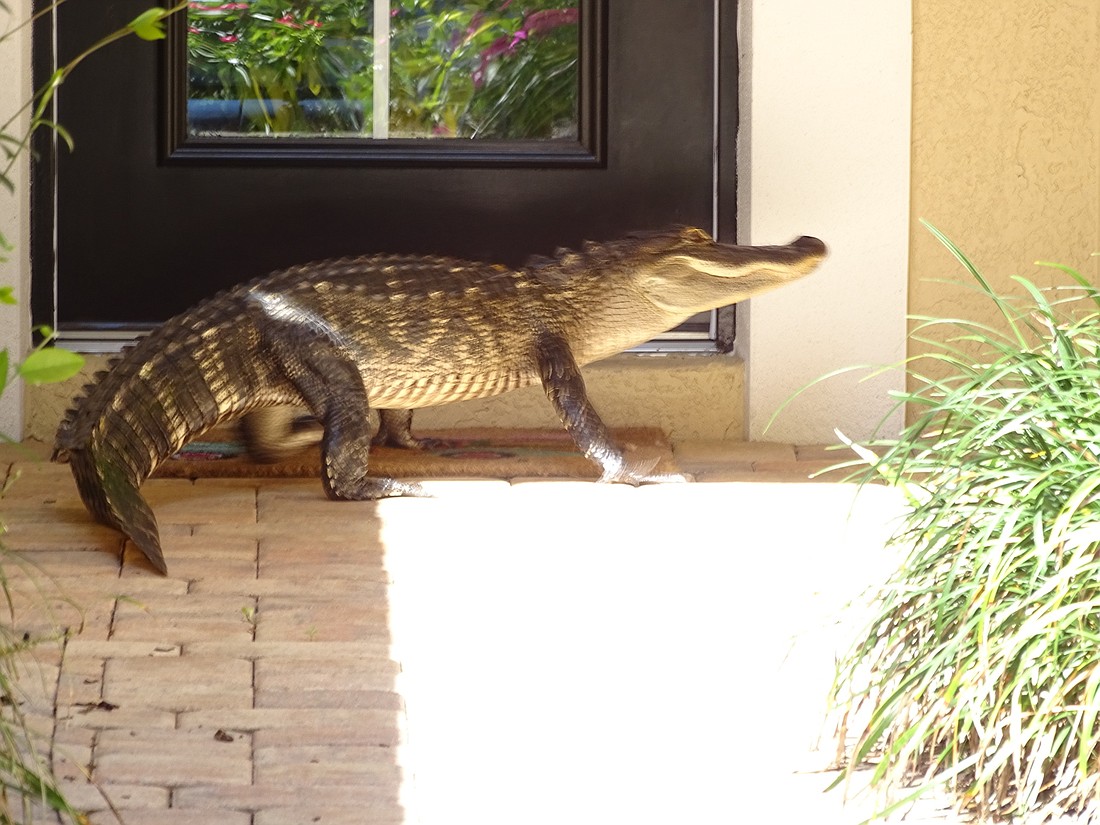- January 2, 2025
-
-
Loading

Loading

“See you later alligator” — a phrase often used to tell children goodbye.
But, for some Lakewood Ranch residents, the phrase has taken on a more literal meaning.
Working at his home desk March 27, it was a normal day for Steve Kulp. That is, until he received a call from a Country Club neighbor, Craig Dawson.
“He was looking out the window across the street from us," Kulp said. “He said, ‘Steve, why don’t you go outside and take a look at what’s in the driveway next door?’”
Expecting to see his neighbor’s Corvette in its usual spot, Kulp headed outside. But, rather than being greeted by four wheels, Kulp was met by a nearly six-foot long alligator.
Naturally, Kulp did what anyone would do when met with the toothy creature — he grabbed his camera and followed it around.
“When you see him raise up on his legs, it’s really something,” Kulp said. “His legs are huge — they’re as big as
mine.”
After making a lap around the house, Kulp thought the gator was headed back to the lake when he suddenly made a
hard left turn into the neighbor's portico.
“He marches directly up to the door,” Kulp said, “He raises up on these big old arms of his and looks into the door.”
The gator wasn’t looking at the neighbor’s small dog.
“He was looking at his own reflection because he's on the prowl,” Kulp said. “It’s that season.”
That season he’s referring to is alligator mating season, which begins in early April and runs through June, according to the Florida Fish and Wildlife Conservation Commission.
Alligators are found in all 67 of Florida’s Counties, and because people often seek waterfront property and participate in water-related activities, there is a greater potential for conflict, the FWC reports.
While alligators smaller than four feet long are often not large enough to be dangerous, the Florida Fish and Wildlife Conservation Commission still advises residents to be cautious when in close contact with alligators.
If residents feel threatened because of an alligator, they may call the Nuisance Alligator Hotline at 866-392-4286, but should keep in mind the alligators are killed, not relocated.
Kulp isn’t worried about the alligators living near him.
“He lives here,” Kulp said. “We moved into his neighborhood. He just cruises in his lake looking for trouble.”
However, he and his neighbors do take extra precautions such as walking their pets on a leash and making sure they use flashlights at night to ensure their safety.
Security footage from a Greenbrook home shows an alligator come out of a lake and wander through the neighborhood.